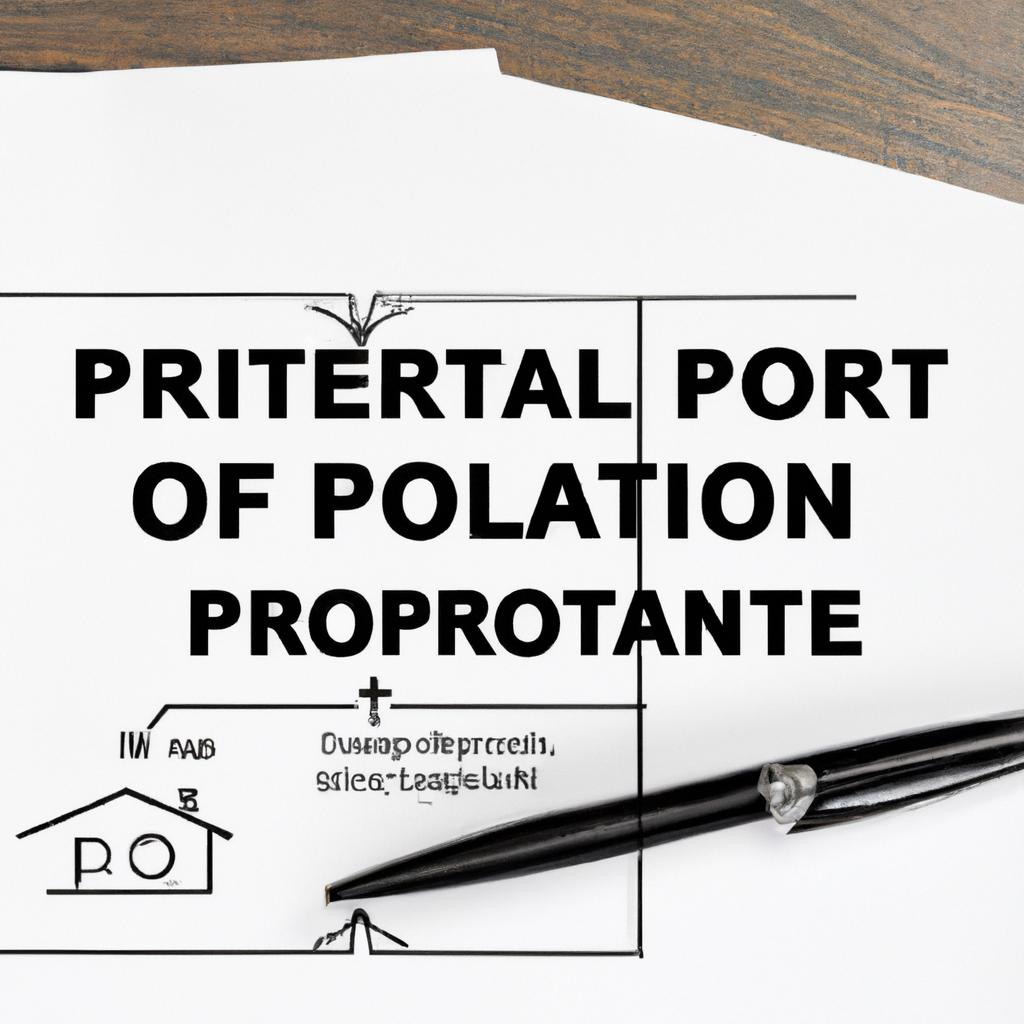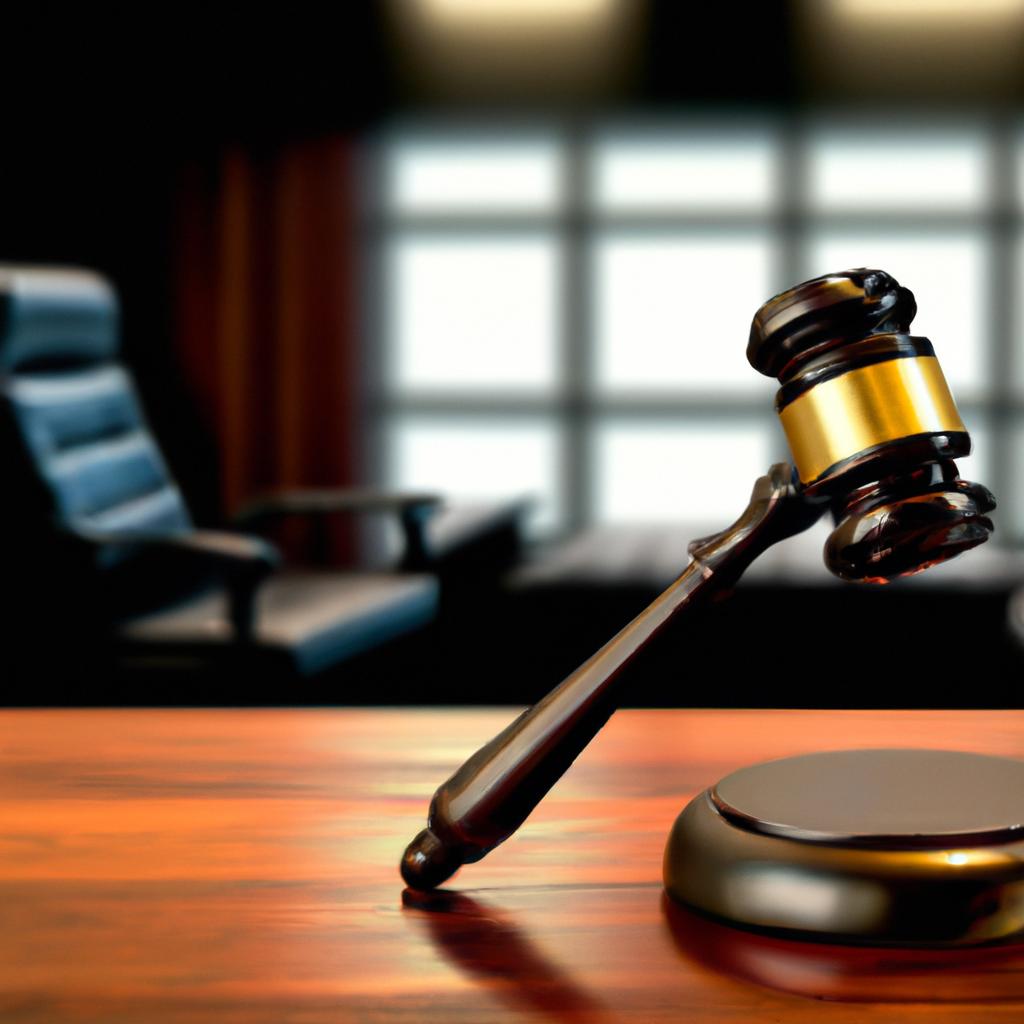Have you ever wondered what will happen to your property once you pass away? As experienced estate planning attorneys at Morgan Legal Group in New York City, we understand the importance of ensuring your assets are protected and distributed according to your wishes. In this article, we will explore the intricacies of estate planning, probate, and the laws surrounding Wills and trusts, so you can have peace of mind knowing that your property will be handled with care and precision.
Understanding the Probate Process for Property Distribution
When an individual passes away, their property must go through the probate process for distribution. Understanding the probate process is crucial to ensure that your assets are distributed according to your wishes. Probate can be a complex and lengthy process, but with the right legal guidance, your loved ones can avoid unnecessary complications.
During probate, the court will oversee the distribution of assets, including real estate, bank accounts, investments, and personal belongings. It is important to have a valid Will in place to dictate how you want your property distributed. If you do not have a Will, the court will distribute your assets according to state laws. Working with an experienced estate planning attorney can help you navigate the probate process and ensure that your property is distributed to your intended beneficiaries.

Key Considerations for Estate Planning to Ensure Property Distribution
Estate planning is a crucial process to ensure that your property is distributed according to your wishes after you pass away. Without proper planning, your assets may not be distributed as you intended, leading to potential disputes among your loved ones. By considering key factors in estate planning, you can ensure that your property is distributed smoothly and efficiently.
Some include:
- Creating a Will: A Will is a legal document that outlines how you want your property to be distributed after your death. By creating a Will, you can specify who will receive your assets and in what proportions.
- Establishing Trusts: Trusts are legal arrangements that allow a third party, known as a trustee, to hold assets on behalf of beneficiaries. By establishing trusts, you can ensure that your property is managed and distributed according to your wishes, while also potentially reducing estate taxes.
- Updating Beneficiary Designations: It is important to regularly review and update beneficiary designations on accounts such as retirement plans and life insurance policies to ensure that your assets are distributed to the intended beneficiaries.

Benefits of Establishing a Will or Trust for Property Management
When it comes to managing your property after you pass away, having a will or trust in place is essential. Without a clear plan in writing, your assets could end up in probate court, causing delays, expenses, and potential conflicts among your heirs. By establishing a will or trust, you can ensure that your property is distributed according to your wishes, providing peace of mind for you and your loved ones.
One of the main benefits of creating a will or trust for property management is the ability to designate specific beneficiaries for each asset. This allows you to control who receives what and how much, preventing any confusion or disputes later on. Additionally, a will or trust can help minimize estate taxes and protect your assets from creditors, ensuring that your loved ones are taken care of financially. Overall, establishing a will or trust is a crucial step in ensuring that your property is managed according to your wishes and that your legacy is preserved for future generations.

Expert Tips for Minimizing Tax Implications on Inherited Property
When it comes to inherited property, there are certain tax implications that must be considered. To minimize these tax implications, it is important to follow expert tips and strategies that can help protect your assets and maximize your estate’s value. One key tip is to properly document the basis of your inherited property, as this will determine the capital gains tax that may be owed when the property is eventually sold. Additionally, utilizing estate planning tools such as trusts can help minimize tax liabilities and ensure that your assets are passed down to your heirs in a tax-efficient manner.
Another important tip for minimizing tax implications on inherited property is to consider gifting strategies during your lifetime. By gifting assets to your heirs before your death, you can reduce the size of your estate and potentially lower the estate tax burden on your loved ones. Additionally, working with an experienced estate planning attorney, such as the legal professionals at Morgan Legal Group in New York City, can help you navigate complex tax laws and create a comprehensive plan to protect your assets for future generations.
Q&A
Q: What happens to my property if I die?
A: When you pass away, your property is typically distributed according to your will, if you have one. If you do not have a will, state laws, known as intestacy laws, will determine how your property is distributed.
Q: Can I specify who receives my property in my will?
A: Yes, you can specify in your will exactly how you want your property to be distributed after your death. This can include leaving specific items to certain individuals, as well as outlining how your assets are divided among your beneficiaries.
Q: What if I die without a will?
A: If you die without a will, your property will be distributed according to the intestacy laws of your state. This means that your assets will be divided among your closest living relatives, such as your spouse, children, or parents.
Q: Can I make changes to my will before I die?
A: Yes, you can update your will at any time before your death. It is important to review your will periodically to ensure it reflects your current wishes and circumstances.
Q: What role do probate courts play in distributing my property?
A: Probate courts oversee the distribution of your property after your death, ensuring that your assets are distributed according to your will or the intestacy laws. Executors of your estate are responsible for carrying out the probate process.
Q: How can I ensure my property is distributed as I wish after my death?
A: To ensure your property is distributed according to your wishes, it is important to create a will and update it as needed. Consulting with an estate planning attorney can help you navigate the legal processes involved in estate planning.
In Conclusion
In conclusion, contemplating the fate of our property after we pass away may not be the most pleasant thought, but it is a necessary one. By understanding the various possibilities and planning accordingly, we can ensure that our assets are distributed according to our wishes. Whether it’s through a will, trust, or other estate planning tools, taking the time to address these matters now can provide peace of mind for ourselves and our loved ones in the future. So, as we navigate the complexities of life and death, let us not forget to also consider what will happen to our property when we are no longer here.
 “What Happens to My Property if I Die?” Understanding Estate Planning and Inheritance
“What Happens to My Property if I Die?” Understanding Estate Planning and Inheritance
Losing a loved one is an emotional and difficult experience, and the last thing anyone wants to think about during such a time is what will happen to their property. However, it’s important to understand the legal and financial implications of your passing, and how your assets will be distributed. This is where estate planning comes into play. In this article, we’ll dive into the details of what happens to your property after death, the importance of estate planning, and practical tips for ensuring a smooth transfer of assets.
Understanding Estate Planning: What is it?
Estate planning is the process of making arrangements for the distribution of your assets after you pass away. This includes all of your assets, such as real estate, investments, vehicles, bank accounts, and personal belongings. It also involves determining who will be responsible for managing and distributing these assets, as well as making decisions regarding your medical care and end-of-life wishes. Proper estate planning allows you to have control over the distribution of your assets and to ensure your wishes are carried out.
What Happens to Your Property if You Don’t Have an Estate Plan?
If you pass away without an estate plan, your assets will be distributed according to state laws, also known as intestate succession laws. These laws vary by state, but typically your assets will be distributed in the following order: spouse, children, parents, siblings, grandparents, and so on. If there are no surviving relatives, your assets will go to the state. This process can take months or even years to go through probate court, and can be a costly and stressful experience for your loved ones.
Benefits of Estate Planning
Having an estate plan in place can provide numerous benefits for both you and your loved ones. These include:
1. Protecting Your Loved Ones: Having an estate plan ensures that your loved ones are provided for and your assets are distributed according to your wishes. It also allows you to choose who will handle your affairs after your passing, preventing potential disputes and confusion among family members.
2. Minimizing Estate Taxes: Proper estate planning can help minimize estate taxes, preserving the value of your assets for your loved ones.
3. Avoiding Probate: With an estate plan in place, your assets can avoid the probate process, which can be time-consuming, expensive, and public.
4. Peace of Mind: Having an estate plan means having peace of mind that your loved ones will be taken care of and your wishes will be carried out after your passing.
Practical Tips for Estate Planning
1. Make a Will: A will is a legal document that outlines your wishes for the distribution of your assets after your death. It also allows you to name guardians for any minor children and specify your funeral arrangements.
2. Choose an Executor: An executor is responsible for managing your estate after your passing. It’s important to choose someone you trust and who is capable of handling the responsibilities involved. You can also name an alternate executor in case your first choice is unable to serve.
3. Consider a Trust: A trust is a legal entity that allows you to transfer your assets to a trustee to be managed and distributed to your beneficiaries. This can help you avoid probate and provide more control over the distribution of your assets.
4. Properly Title Your Assets: Make sure your assets are properly titled, including adding beneficiaries to bank accounts and insurance policies, to ensure a smooth transfer of assets. This can also help minimize estate taxes.
5. Review and Update Regularly: It’s important to review and update your estate plan regularly, especially after major life events such as marriage, divorce, birth of children, or the acquisition of new assets.
Case Studies and First-Hand Experiences
Case studies and first-hand experiences can offer valuable insights into the importance of estate planning. For example, without an estate plan, Aretha Franklin’s $80 million estate was left to be divided equally among her four sons, despite her wishes to provide for her niece and other family members. This case highlights the importance of having a will to distribute your assets according to your wishes.
Another example is Prince, who passed away without a will, causing a lengthy and expensive legal battle among his family over the distribution of his assets. Both of these cases illustrate the potential complications and conflicts that can arise without an estate plan in place.
In conclusion, understanding what happens to your property after your death is crucial, and having an estate plan can ensure your assets are distributed according to your wishes and provide peace of mind for you and your loved ones. By following the practical tips mentioned above and seeking the advice of an estate planning attorney, you can create a comprehensive plan that reflects your wishes and provides for your loved ones. Start the process today and secure the future of your estate.

